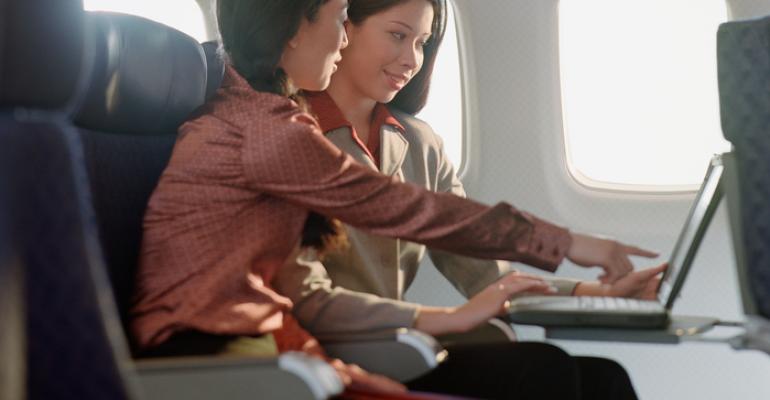Passengers on Etihad Airlines flights to the United States are now allowed to bring electronic devices larger than a smart phone into the cabin after the airline met the tougher screening requirements announced by Department of Homeland Security Secretary John Kelly in June. The Transportation Security Administration is expected to verify measures for Turkish Airlines, Emirates, and Qatar Airlines later today. A spokesperson for Istanbul’s Ataturk Airport confirmed that Turkish Airlines passengers carrying electronic devices will be screened four separate times before boarding.
The ban was initially introduced for 10 airports in eight Muslim-majority countries amid fears that terrorists could hide explosives in laptops. In a press conference last week, DHS Secretary John Kelly announced the new requirements in airport security and said, “Make no mistake: our enemies are constantly working to find new methods for disguising explosives, recruiting insiders, and hijacking aircraft.”
Some of the new screening requirements were not communicated to the public for security reasons, but others included better vetting of airline employees, increased use of K9 sniffer dogs and explosives detection equipment, and enhanced screening of airline passengers.
The ban was widely unpopular because the fear of lithium-ion battery fires in the cargo hold and the disruption for business travelers. After the initial announcement of the ban in March, Emirates Airlines cut one-fifth of its flights to the United States citing weakened business travel demand.
In May, a survey by the Business Travel Coalition found that a majority of respondents were likely to reduce trips if the laptop ban is introduced.
At last week’s press conference, Kelly announced that, “It is time that we raise the global baseline of aviation security." Although airlines are expected to carry the cost, the enhanced security measures are likely to be a more popular approach than depriving lucrative business customers of their laptops on long-haul flights.





